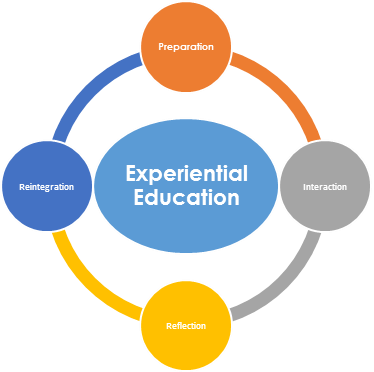by Alyson Drake
Editor’s Note: This week’s post is by incoming RIPS-SIS Vice-Chair/Chair Elect Alyson Drake. Alyson is currently the Reference and Student Services Librarian and the Coordinator of the Excellence in Legal Research Program at the Texas Tech University School of Law Library.
 It’s no secret that legal education is focused primarily on producing graduates who are “practice ready.” The ABA’s increased experiential learning requirement, requiring at least six hours of experiential courses for each student, is a direct response to the argument that new attorneys lack the necessary skills to act like a lawyer from day one on the job. With new attorneys reporting that they spend 35% of their time conducting legal research, it is no stretch to argue that legal education should devote more time and energy to experiential legal research education.
It’s no secret that legal education is focused primarily on producing graduates who are “practice ready.” The ABA’s increased experiential learning requirement, requiring at least six hours of experiential courses for each student, is a direct response to the argument that new attorneys lack the necessary skills to act like a lawyer from day one on the job. With new attorneys reporting that they spend 35% of their time conducting legal research, it is no stretch to argue that legal education should devote more time and energy to experiential legal research education.
Our research courses have always focused on practical skills, but what else does it take to make a course experiential in nature? To qualify as experiential under Standard 303(a)(3), “a course must be primarily experiential in nature and must (i) integrate doctrine, theory, skills, and legal ethics, and engage students in performance of one or more of the professional skills identified in Standard 302,” one of which is legal research. The course must also “(ii) developing the concepts underlying the professional skills being taught; (iii) provide multiple opportunities for performance; and (iv) provide opportunities for self-evaluation.” In addition, experiential courses must be a simulation, a law clinic, or a field placement.
Of the three, it seems most likely that our courses would fit in the simulation category, which has its own set of requirements found in Standard 304(a). To qualify as a simulation, a course must “provide[] substantial experience not involving an actual client, that (1) is reasonably similar to the experience of a lawyer advising or representing a client or engaging in other lawyering tasks in a set of facts and circumstances devised or adopted by a faculty member, and (2) includes the following:
(i) direct supervision of the student’s performance by the faculty member;
(ii) opportunities for performance, feedback, and self-evaluation; and
(iii) a classroom instructional component.”
There is some clear overlap between the two sets of formal requirements, so here is a combined, easy-to-follow set of eight requirements your course must meet to qualify as an experiential simulation course:
- “[B]e primarily experiential in nature.”
- “[P]rovide[] substantial experience not involving a client, that is . . . reasonably similar to the experience of a lawyer . . . engaging in . . . lawyering tasks.”
- “[I]ntegrate doctrine, theory, skills, and legal ethics, and engage students in performance of one of the professional skills identified in Standard 302”, such as legal research.
- “[D]evelop the concepts underlying the professional skills being taught.”
- “[P]rovide multiple opportunities for performance.”
- “[P]rovide opportunities for self-evaluation.”
- Include “direct supervision of the student’s performance” by and feedback from a faculty member.
- Include a classroom instructional component.
It seems obvious to many law librarians that many of these criteria are easily met in most legal research courses, but keeping all eight requirements in mind as you design your course will make it easier to persuade your curriculum committee that your legal research course meets them, too. Demonstrating that legal research courses can be designated as experiential is just one more way we can show our value to our institutions.
For more on how to create an experiential legal research course, please stop by the RIPS-sponsored program in Chicago: Leave Treasure Hunts to Pirates: Using Research Plans and Logs to Create Experiential Legal Research Courses, on Sunday, July 17th from 11:30am-12:30pm in Hyatt-Regency Ballroom B, or check out my forthcoming article, “The Need for Experiential Legal Research Education,” coming out in the November issue of Law Library Journal.


Reblogged this on DipLawMatic Dialogues and commented:
Alyson Drake has published a helpful primer on the ABA’s experiential learning requirements on the RIPS-SIS blog today. Alyson has contributed significantly to FCIL-SIS through her work with DipLawMatic Dialogues. She is also Chair of the European Law Interest Group, incoming Co-Chair of the Publicity Committee, and a member of the Customary and Religious Law Interest Group.
Pingback: Implementing Opportunities for Self-Evaluation: Part 1 of 3 | RIPS Law Librarian Blog